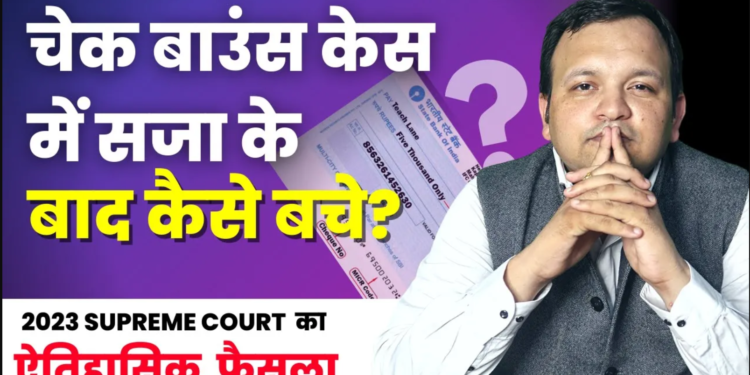Introduction:
The term “Cheque Bounce Case” is a criminal offense per Section 138 of the Negotiable Instruments Act of 1881. If a complaint is filed in court and the accused is found guilty, the defaulter may face a prison term of up to two years and/or a fine, which can be as high as twice the amount of the bounced cheque.
If you’ve been booked for a cheque bounce case or someone has accused you of such a case, you might have several questions on what to do and what remedies are available.
Being stuck in such a situation is a distressing event.
So what remedies can one opt for being booked in a Cheque Bounce Case?
Well,
- The First is, To prove the truth in the court of law, and
- The second is to seek Settlement options outside court with the other party.
Now the question is, if such settlement outside court is made in Cheque Bounce Cases, are there any costs that need to be incurred by the parties?
The answers to all these questions are provided in this blog post backed by a recent Landmark Judgement of The Supreme Court; in BV Seshaiah vs The State of Telangana, 1 February 2023.
So, keep reading till the end to gain comprehensive insights into these issues.
And if doubts persist, we are just a call away: https://thelegalshots.com/legal-opinion/
Landmark Judgement in BV Seshaiah vs The State of Telangana, 1 February 2023,
Brief facts of the case:
In the case of BV Seshaiah vs The State of Telangana, the complainant deposited a cheque that bounced due to insufficient funds in the accused’s account. After sending a legal notice, the accused failed to deposit the money, leading the complainant to file a Section 138 criminal complaint. The accused appealed to the High Court, but despite reaching a settlement and signing a memorandum of understanding (MOU) with the complainant, the High Court did not consider the settlement and proceeded with the punishment imposed by the trial court. The accused then approached the Supreme Court, questioning why they were still convicted despite reaching a settlement.
Final Judgement:
After analysing previous judgments, including the landmark case of M/S Meters and Instruments vs Kanchan Mehta (5 October 2017), the Supreme Court emphasised that the objective of Section 138 is not to send individuals to jail but to prevent cheque bouncing and ensure smooth business transactions. The Court clarified that this offence is civil in nature, and if a compromise or settlement is reached, it should be considered and prioritised.
The Supreme Court ruled that if a settlement or compromise is made between the parties during any stage of the proceedings, the court must immediately stop the proceedings under Section 138. The trial should then proceed based on the terms of the settlement reached by the parties. The Court further stated that any settlement deed or compromise should be accepted, and the punishment should be quashed accordingly. As a result, the High Court’s judgement was set aside and quashed.
Therefore, the importance of Settlement outside court is highly beneficial to avoid imprisonment under Section 138 of Negotiable Instruments Act, 1881 cases. Since this offence is compoundable and primarily focused on financial liability rather than punishment, parties involved should actively seek an out-of-court settlement. By doing so, individuals can bypass the lengthy trial process and the potential consequences of punishment.
Thus, while settling outside of court can save individuals from punishment, it is important to consider the associated costs with Settlement:
The Supreme Court, in the case of Damodar S. Prabhu vs Sayed Babalal H (3 May 2010), established the following cost structure:
- Initial Level (First or Second Hearing in Trial Court): No cost bearing.
- Trial Court Proceedings (After commencement): 10% of the cheque amount.
- Sessions Court/High Court (Appeal or Revision Stage): 15% of the cheque amount.
- Supreme Court: 20% of the cheque amount.
Conclusion:
In conclusion, the recent landmark judgment of the Supreme Court has provided important insights into saving oneself from punishment in cheque bounce cases through out-of-court settlements. Parties involved should prioritize compromise to avoid imprisonment, as Section 138 of NI Act is a compoundable and civil offense. However, it is crucial to consider the costs associated with settlements, which vary depending on the stage at which the settlement is reached. By understanding the legal implications and costs, individuals can make informed decisions when faced with cheque bounce cases.
To understand more complex law in simple ways, stay connected with www.thelegalshots.com .
If doubts still persist, contact our Legal Experts at




